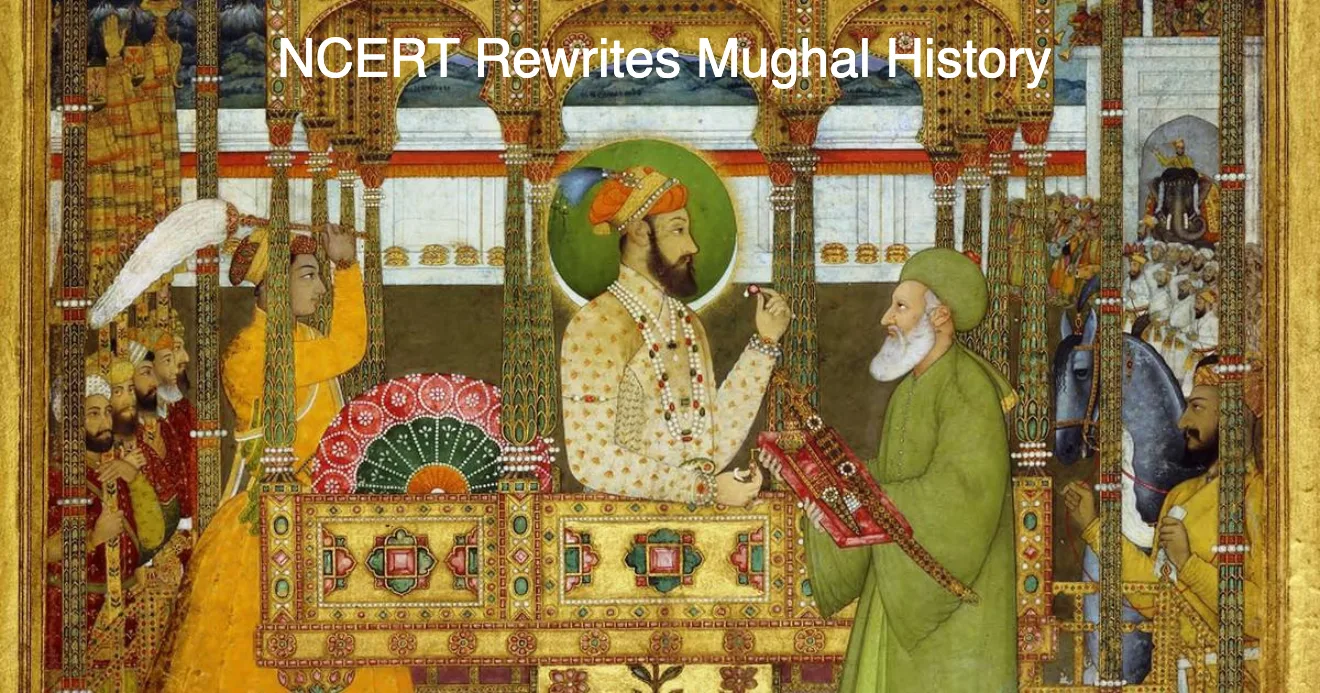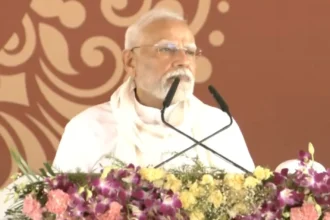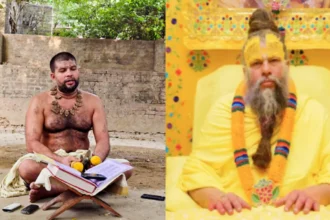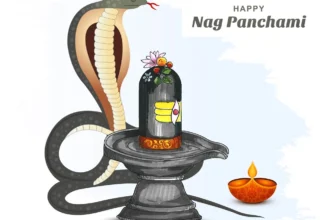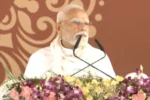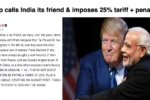NEW DELHI, India – July 18, 2025
NCERT’s New Mughal History – India’s academic and political arenas are ablaze with controversy following the National Council of Educational Research and Training (NCERT)’s updated history textbooks for the 2025-26 academic year. At the heart of the storm are significant revisions to the portrayal of the Mughal era, particularly in the Class 8 Social Science textbook, which have ignited a sharp political debate across the nation.
These new textbooks offer a dramatically altered perspective on Mughal rulers, explicitly highlighting instances of brutality, religious intolerance, and widespread resistance. While the NCERT and the ruling government maintain that these changes are a “course correction” for a more accurate historical narrative, opposition parties are vehemently accusing them of “rewriting history” with a biased, politically motivated agenda.
Table of Contents
NCERT’s New Mughal History – The Core of the Curriculum Controversy
The revised NCERT textbooks, specifically “Exploring Society: India and Beyond” for Class 8, introduce students to the Delhi Sultanate and Mughal periods with a new lens:
- “Brutal and Ruthless Conquerors”: Figures like Babur are now described as “brutal and ruthless conquerors” who “slaughtered entire populations of cities” and erected “towers of heads,” with references from his own autobiography, the Baburnama.
- Akbar’s Dual Nature: Emperor Akbar’s reign is presented as a “blend of brutality and tolerance.” While acknowledging his religious accommodation (like abolishing jizya) and inclusion of Rajputs, the text also details the massacre of 30,000 civilians during the 1568 siege of Chittorgarh and enslavement.
- Aurangzeb’s Intolerance: Aurangzeb is explicitly shown as a military ruler who banned “un-Islamic” practices, reimposed jizya on non-Muslims, and ordered the destruction of numerous temples and gurdwaras.
- Emphasis on Resistance: The new curriculum dedicates more space to resistance movements against Mughal rule, including those by Mewar’s Maharana Pratap, the Ahoms in the Northeast, and various tribal and peasant communities.
- Class Shift: All direct references to the Mughals and Delhi Sultanate have been removed from Class 7 textbooks, with the detailed study now commencing in Class 8.
- “No Blame” Disclaimer: A unique “Note on Some Darker Periods in History” has been added, stating that while historical events cannot be denied, “it would be wrong to hold anyone today responsible for them.” This aims to prevent modern-day prejudice.
NCERT’s New Mughal History – Government’s Justification: A “Corrected” History
The National Council of Educational Research and Training (NCERT) has defended the revisions, stating they are based on “well-known primary and secondary academic sources” and align with the National Education Policy (NEP) 2020. Officials argue that the goal is to provide an “honest understanding of history,” presenting a more comprehensive picture that includes often-overlooked aspects of brutality and indigenous resistance. They emphasize integrating “Indian ethos” and local contexts into the curriculum.
Opposition’s Outcry: “Rewriting History” for Political Gain
Opposition parties, particularly the Congress and members of the INDIA bloc, have sharply criticized the changes. They allege that the revisions are a deliberate attempt to “rewrite history” to fit a specific ideological narrative, often termed “saffronisation” of education.
A Congress spokesperson reportedly stated, “History is to educate, it is not to instigate. What do you want our Class 8 child to have a revengeful feeling, to have a vengeance or hatredness inside him?” Critics argue that highlighting only the “darker periods” could sow communal divisions among young students by vilifying communities based on their historical ancestry. Some historians also raise concerns about selective portrayal and potential factual inaccuracies in the new emphasis.
Conversely, some Sikh clerics and proponents of the ruling party have welcomed the changes, arguing that the previous textbooks “whitewashed” historical atrocities and that the new version is essential to highlight truths that were “suppressed.”
The Road Ahead: Education and Ideology on a Collision Course
As these revised textbooks roll out in schools for the current academic year, the political debate is expected to intensify. The core of the argument revolves around whether the new curriculum offers a balanced historical correction or is an ideologically driven distortion. For students across India, these updated pages will shape their understanding of one of the most significant periods in the nation’s past, making the stakes of this “history war” exceptionally high.
Keep following Duniya Daily for more such important news and insights!

